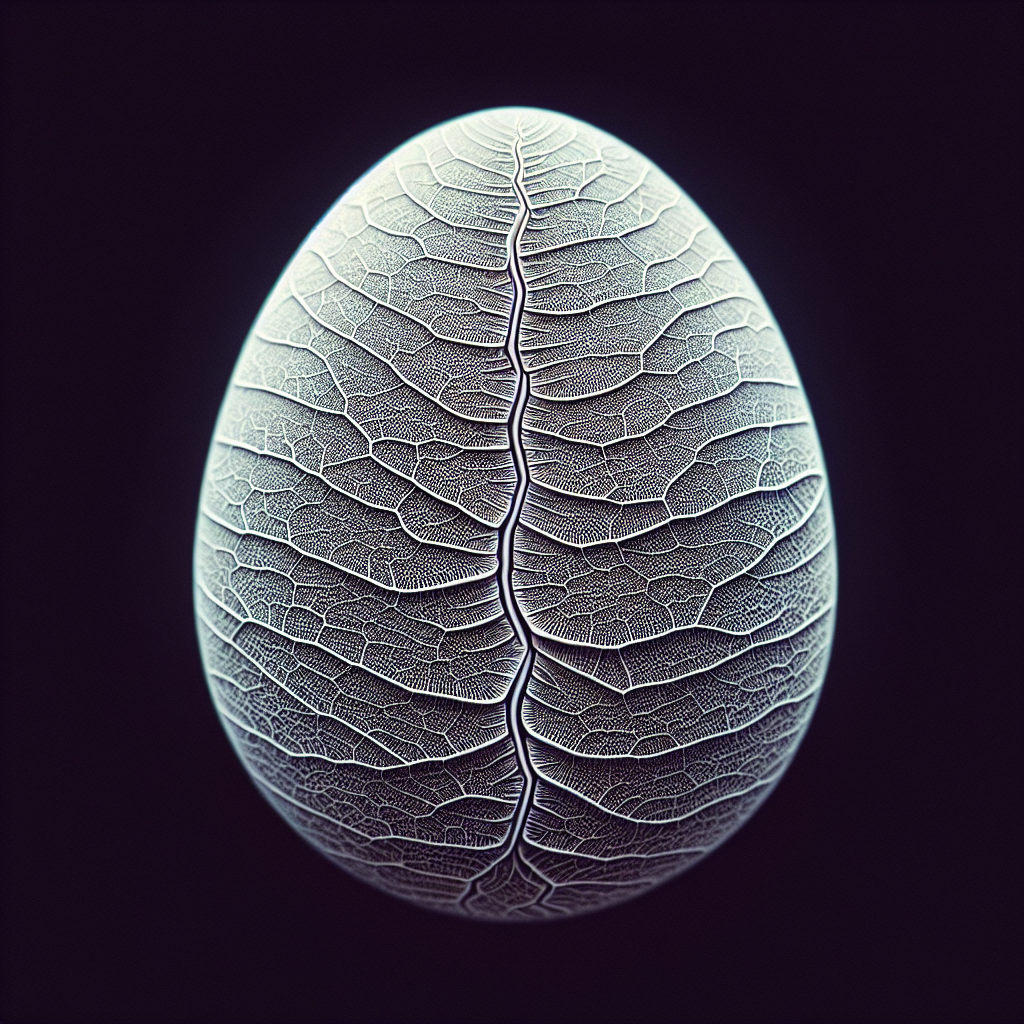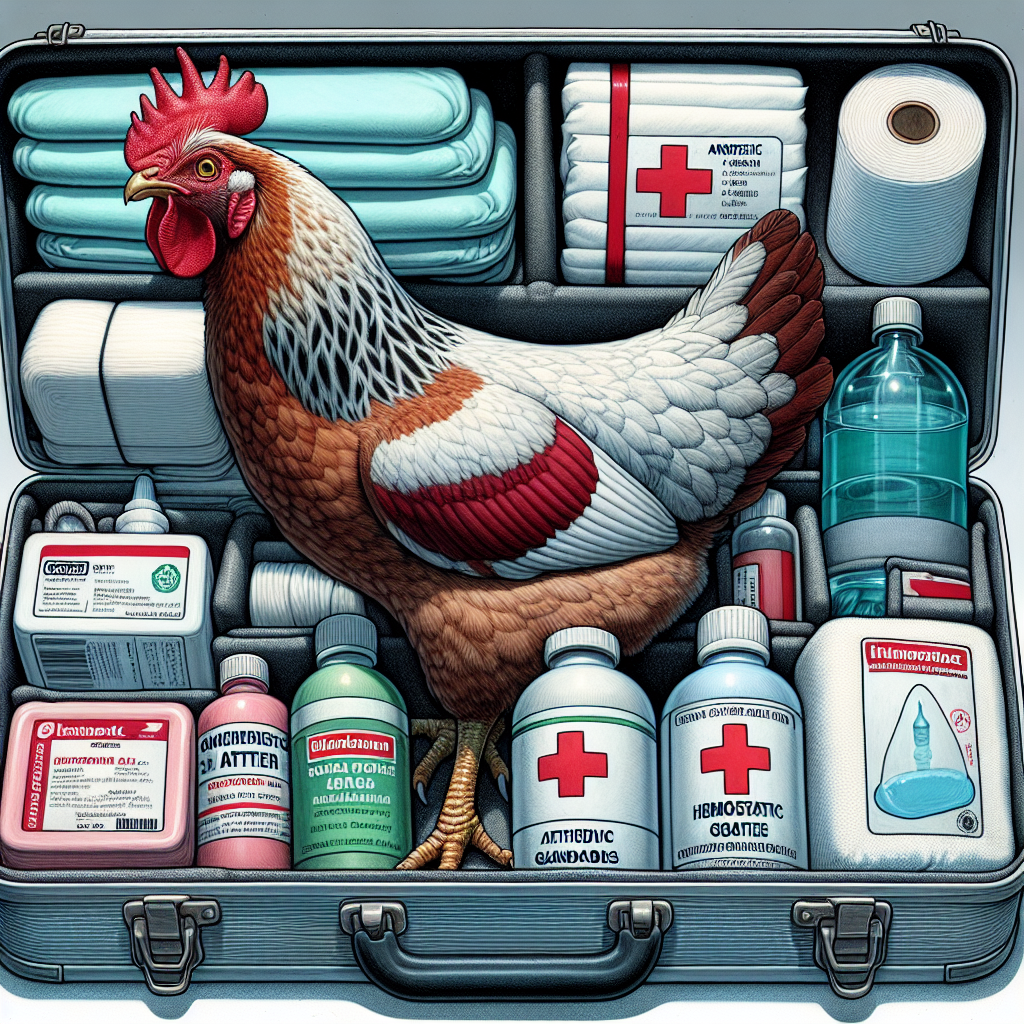In this article, we will explore the methods to identify and address potential cases of coccidiosis in chickens. It is essential for chicken owners to be aware of the signs and symptoms of this common disease, as early detection can greatly reduce the impact on the flock. By understanding the key indicators and implementing appropriate treatment, you can ensure the health and well-being of your feathered friends. So, let’s jump right into it and learn how to keep your chickens happy and disease-free!
Understanding Coccidiosis in Chickens
Coccidiosis is a common and concerning health issue that affects chickens. It is a parasitic disease caused by a group of microscopic organisms known as coccidia. These organisms invade the intestinal tract of chickens and reproduce, causing damage to the lining of the intestines and leading to various health problems.
What is Coccidiosis?
Coccidiosis is a highly contagious disease that primarily affects young chickens, although adult birds can also be susceptible. The disease is caused by several species of the coccidia parasite, with Eimeria tenella being the most common one. Chickens become infected with the parasite when they come into contact with contaminated feces, soil, or bedding materials. Once the parasite enters their system, it multiplies rapidly and causes damage to the intestinal lining.
Why is Coccidiosis a concern for chickens?
Coccidiosis can have severe implications for the health and well-being of chickens. The disease can lead to decreased growth rates, reduced feed conversion efficiency, and poor egg production in layers. Chickens with coccidiosis may also exhibit symptoms such as diarrhea, weight loss, dehydration, decreased activity, and even death in severe cases. Additionally, the disease can weaken the chicken’s immune system, making them more susceptible to other infections and diseases.
Life Cycle of Coccidiosis in Chickens
Understanding the life cycle of coccidiosis is crucial for its prevention and management. The coccidia parasite completes its life cycle within the chicken’s intestinal tract. After being ingested, the parasite undergoes a series of developmental stages, producing oocysts (eggs) that are shed in the feces. These oocysts can survive in the environment for extended periods and can infect other chickens that come into contact with them. It is important to note that the severity of coccidiosis can vary depending on the species of coccidia and the chicken’s immune response.
Common Symptoms of Coccidiosis in Chickens
Recognizing the symptoms of coccidiosis is crucial for early detection and treatment. Common signs of coccidiosis in chickens include diarrhea (which may be bloody or contain mucus), decreased appetite, lethargy, weight loss, huddling, ruffled feathers, and reduced overall health. It is important to remember that these symptoms can also be indicative of other diseases, so proper diagnosis is essential to determine the cause accurately.
Recognizing Potential Cases of Coccidiosis
Observing the Flock’s Behavior
One of the first steps in identifying potential cases of coccidiosis is to closely observe the behavior of your flock. Infected chickens may appear lethargic, have a reduced appetite, or show signs of discomfort. They may exhibit decreased activity levels, huddling together, or isolating themselves from the rest of the flock. Paying attention to these behavioral cues can provide valuable insights into the health of your chickens.
Inspecting Fecal Matter
Another important method for detecting coccidiosis is to inspect the fecal matter of your chickens. Infected chickens may have diarrhea, which can range in consistency from watery to bloody. Checking the consistency, color, and presence of any abnormalities in the feces can give you a clue if coccidiosis is present in your flock.
Assessing Feed and Water Consumption
Monitoring the feed and water consumption of your chickens can also help in identifying potential cases of coccidiosis. Infected chickens may show a decreased appetite or reduced interest in their food and water. Keep track of any significant changes in their consumption patterns and consult a veterinarian if you notice any significant deviations.
Monitoring General Health and Well-being
Regularly monitoring the general health and well-being of your chickens is essential for detecting coccidiosis. Look out for any signs of weight loss, poor feather quality, or decreased activity levels. Additionally, keeping track of the overall health of your flock can help you identify any changes or abnormalities that may point to coccidiosis.
Diagnosing Coccidiosis
Consulting a Veterinarian
If you suspect coccidiosis in your chickens, it is recommended to consult a veterinarian for a proper diagnosis. A veterinarian will assess the symptoms, conduct a thorough examination, and may collect fecal samples for further analysis. Experienced veterinarians can provide accurate diagnoses and recommend appropriate treatment options based on the severity of the infection.
Laboratory Testing
Laboratory testing plays a vital role in diagnosing coccidiosis. Fecal samples can be sent to a diagnostic laboratory, where they will be analyzed for the presence of coccidia oocysts. This method allows for a more accurate identification of the species of coccidia involved, helping veterinarians choose the most effective treatment options.
Use of Diagnostic Kits
There are also diagnostic kits available that allow chicken owners to test their birds for coccidiosis themselves. These kits typically involve collecting fecal samples and using specific reagents to determine the presence of coccidia oocysts. However, it is important to consult with a veterinarian to ensure proper interpretation of the results and appropriate treatment measures.
Other Diagnostic Methods
In some cases, additional diagnostic methods such as necropsy (postmortem examination) or blood tests may be necessary for a comprehensive diagnosis. Necropsy can provide valuable insights into the extent of intestinal damage caused by coccidia, while blood tests can help determine the chicken’s immune response and overall health status.
Preventing Coccidiosis
Maintaining Proper Hygiene Practices
Proper hygiene practices play a crucial role in preventing coccidiosis in chickens. This includes regularly cleaning and disinfecting the coop, removing feces and contaminated bedding promptly, and ensuring the chickens have access to clean and fresh water. It is also important to keep the surrounding areas clean and free of stagnant water sources that may harbor coccidia.
Regularly Cleaning and Sanitizing the Coop
Cleaning and sanitizing the coop on a regular basis is essential to minimize the risk of coccidiosis. Remove any feces, contaminated bedding, or other debris from the coop and replace it with fresh bedding. In addition, using disinfectants recommended for poultry farming can help kill any remaining coccidia organisms.
Managing Flock Density and Space
Overcrowding can increase the risk of coccidiosis transmission, as it provides more opportunities for chickens to come into contact with contaminated feces. Managing flock density and providing adequate space for each chicken can help reduce the chances of coccidiosis spread. Ideally, provide at least four square feet of space per chicken in the coop and ensure proper ventilation to minimize humidity.
Applying Preventive Medications and Vaccinations
Various preventive medications and vaccines are available to protect chickens against coccidiosis. These medications are typically added to the chickens’ feed or water and help control the growth of coccidia in their digestive systems. It is important to follow the manufacturer’s instructions and consult with a veterinarian to determine the most suitable preventive measures for your flock.
Treating Coccidiosis
Administering Appropriate Medication
Treatment for coccidiosis typically involves the administration of appropriate medications. These medications aim to kill the coccidia organisms in the chicken’s digestive system and alleviate the symptoms of the disease. It is essential to consult with a veterinarian to determine the most effective medication and the correct dosage for your specific flock.
Using Anticoccidial Drugs
Anticoccidial drugs are commonly used to treat coccidiosis in chickens. These drugs work by targeting the coccidia organisms and preventing their reproduction. Some commonly used anticoccidial drugs include ionophores and chemical compounds such as amprolium. It is crucial to use these drugs according to the instructions provided by the manufacturer or veterinarian.
Natural Remedies and Alternative Treatments
In addition to conventional medications, some chicken owners may opt for natural remedies or alternative treatments to manage coccidiosis. These may include herbal remedies, probiotics, or organic acids that are believed to have coccidiostatic properties. However, it is important to note that the effectiveness of these treatment options may vary, and it is recommended to consult with a veterinarian before using them.
Combining Treatment with Preventive Measures
To combat coccidiosis effectively, it is crucial to combine treatment with preventive measures. Continuing preventive practices such as maintaining good hygiene, managing flock density, and providing clean feed and water can help minimize the risk of re-infection. Regularly monitoring the health and well-being of your chickens and seeking veterinary guidance can aid in the long-term management of coccidiosis.
Healthy Rearing Practices
Providing Clean and Nutritious Feed
Ensuring that your chickens have access to clean and nutritious feed is essential for their overall health and resilience against diseases such as coccidiosis. Use high-quality commercial feed formulated specifically for chickens and avoid feeding them moldy or spoiled feed. Proper nutrition plays a vital role in boosting the immune system and reducing the severity of coccidiosis.
Ensuring Access to Clean Water
Clean and fresh drinking water is essential for maintaining the health and well-being of chickens. Ensure that your chickens have access to clean water at all times, and regularly clean and refill their water containers to prevent contamination. Good hydration is vital for preventing dehydration, which can exacerbate the symptoms of coccidiosis.
Implementing Proper Ventilation
Proper ventilation in the coop is crucial for maintaining optimal air quality and reducing humidity. Excessive humidity can create an environment conducive to the growth and spread of coccidia. Adequate ventilation helps minimize the buildup of moisture, reducing the chances of coccidiosis transmission and promoting overall health.
Maintaining Optimal Temperature and Humidity
Maintaining appropriate temperature and humidity levels within the coop is essential for the health and well-being of chickens. Extreme temperatures or high humidity can stress chickens and weaken their immune systems, making them more susceptible to coccidiosis. Use appropriate heating or cooling measures to ensure a comfortable environment for your flock.
Environmental Management
Regular Coop Inspections
Regularly inspecting the coop for any signs of coccidiosis or other health issues is crucial for timely intervention. Look out for dirty bedding, excessive feces, or any unusual behavior or symptoms displayed by your chickens. Promptly addressing any potential issues can help prevent the spread of coccidiosis and maintain a healthy flock.
Proper Waste Management
Proper waste management is vital in preventing the spread of coccidiosis. Regularly remove feces, contaminated bedding, and any other sources of potential contamination from the coop. Dispose of these materials appropriately, ensuring they are kept away from healthy chickens and the surrounding environment.
Controlling External Parasites
External parasites, such as mites and lice, can compromise the health and immune system of chickens, making them more vulnerable to coccidiosis. Implement measures to control and prevent external parasites, such as regularly inspecting and treating chickens for infestations, using appropriate poultry-approved pesticides, and ensuring proper cleanliness of the coop and surroundings.
Considerations for Indoor and Free-Range Systems
Whether rearing chickens in an indoor or free-range system, specific considerations can help minimize the risk of coccidiosis. In indoor systems, maintaining proper ventilation, cleanliness, and sanitation protocols is crucial. For free-range systems, ensuring the chickens have access to clean pastures, managing flock density, and implementing regular surveillance for potential risks are essential preventive measures.
Biosecurity Measures
Limiting Visitors and Avoiding Cross-Contamination
Implementing strict biosecurity measures is crucial in preventing the introduction and spread of coccidiosis in your flock. Limit the number of visitors to your poultry farm and avoid interactions between your chickens and other birds or animals that may carry diseases. Minimize the risk of cross-contamination by avoiding sharing equipment, tools, or supplies between different flocks.
Quarantine and Isolation Practices
Whenever introducing new chickens to your flock or acquiring birds from other sources, it is essential to implement quarantine and isolation protocols. Quarantining new additions for a specified period allows for close monitoring and detection of any potential diseases, including coccidiosis. Isolating infected or sick chickens can also help prevent the spread of coccidiosis within the flock.
Disinfecting Equipment and Footwear
Proper disinfection of equipment, tools, and footwear is a critical step in preventing the introduction and spread of coccidiosis. Regularly clean and sanitize any equipment used in your coop, such as feeders, waterers, and nesting boxes. Disinfect your footwear before entering the coop to prevent the accidental transfer of coccidia organisms.
Screening New Additions to the Flock
Screening new additions to your flock is essential in preventing the introduction of coccidiosis. Before acquiring new chickens, ensure that they come from a reputable source with a proven track record of good flock health. Request health certificates or conduct thorough inquiries about the coccidiosis status of the birds. This will help minimize the risk of introducing infected birds into your flock.
Health Monitoring and Record-Keeping
Establishing a Health Monitoring Program
Establishing a health monitoring program can help in the early detection and management of coccidiosis. Regularly monitor the health and behavior of your chickens, record any symptoms or abnormalities, and take appropriate action based on the observations. This will allow for timely intervention and treatment when necessary.
Regularly Recording Observations and Symptoms
Maintaining accurate records of observations and symptoms is essential for proper disease management. Record any signs of coccidiosis, such as diarrhea, weight loss, or decreased activity. Note any treatments administered or preventive measures implemented. These records can help track the effectiveness of interventions and enable better decision-making regarding flock health.
Seeking Professional Advice
Seeking professional advice from a veterinarian or poultry health expert is highly recommended when dealing with coccidiosis. They can provide guidance on preventive measures, diagnosis, appropriate treatment options, and long-term flock management. Their expertise and experience will ensure that you are equipped with the necessary knowledge to effectively address coccidiosis in your chickens.
Sharing Information with Other Chicken Keepers
Sharing information and experiences with other chicken keepers is beneficial for the overall management and prevention of coccidiosis. Participate in poultry forums or local poultry groups to exchange knowledge, discuss strategies, and learn from others. This collaborative approach can help improve awareness and practices related to coccidiosis in chickens.
Educating Yourself and Others
Staying Informed about Coccidiosis
Continuously updating your knowledge about coccidiosis is crucial for effective prevention and management. Stay informed about the latest research, trends, and best practices in coccidiosis control. Stay updated with reputable sources such as academic journals, veterinary publications, and industry recommendations.
Attending Workshops and Training
Attending workshops and training programs related to poultry health and management can enhance your understanding of coccidiosis. These events often cover topics such as disease prevention, diagnosis, treatment, and general flock management techniques. Interacting with experts and fellow chicken keepers can broaden your perspective and enable you to implement better practices.
Sharing Knowledge with Fellow Chicken Keepers
Share your knowledge and experiences regarding coccidiosis with fellow chicken keepers. Engage in discussions, provide guidance, and share tips on preventing and managing the disease. By promoting awareness and good practices, you can contribute to the overall well-being and health of the wider chicken-keeping community.
Promoting Biosecurity and Good Practices
Promote the importance of biosecurity and good practices in poultry farming among your fellow chicken keepers. Encourage the implementation of preventive measures, such as proper hygiene, regular health monitoring, and appropriate medication administration. By working together, we can collectively reduce the incidence and impact of coccidiosis in chickens.




